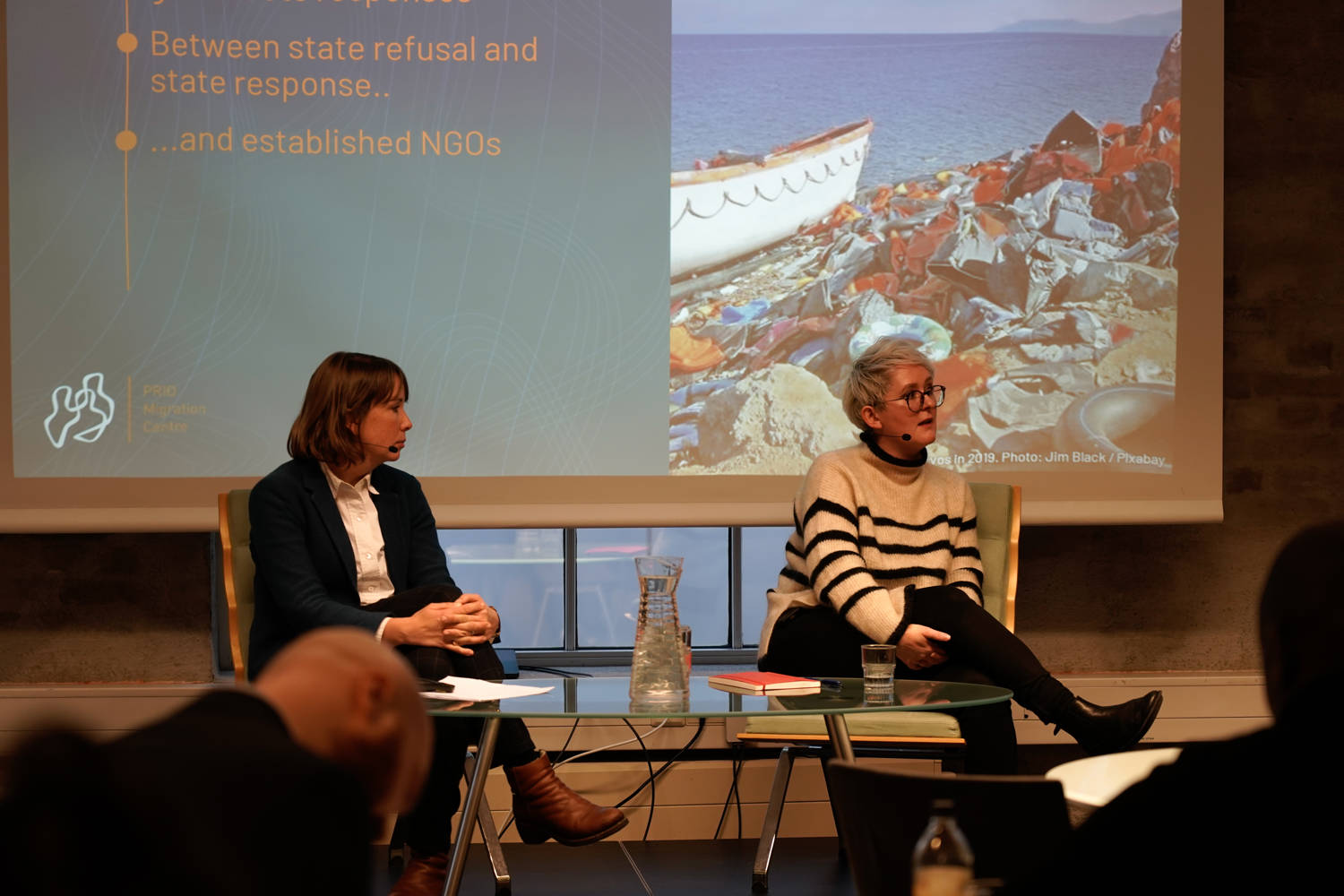
The HumBORDER project held its closing seminar on 1-2 December 2022 at PRIO. Looking back at the humanitarian borders of Europe from 2015-2022 the first part of the seminar assessed different manifestations and dynamics of these borders.
The discussion of humanitarian borders of Europe from 2015 to 2022 was conducted including illustrations from Greece, Poland, France, the United Kingdom and the Mediterranean. Insights into the trends in the digitalization of the EU's borders were also shared (more in this new Policy brief by Lise Endregard Hemat). The project has also explored the various hostile environments at the borders, and how Australia's practiceshave been looked to in efforts to externalize migration control (see this article by Ayşe Bala Akal).
The seminar also included a book talk, presenting contributions to the project's edited volume, edited by project leader Maria Gabrielsen Jumbert and Elisa Pascucci, on "Citizen Humanitarianism at European Borders", in conversation with Polly Pallister-Wilkins' recent book on "Humanitarian Borders: Unequal Mobility and Saving Lives". Citizen engagement and volunteers' roles in providing aid to refugees and other migrants, and how these initiatives have evolved over time has been a key topic in the project (more on this in this article, and blogpost).
The final session shed light on new dilemmas raised when refugees are also fleeing with their companion animals, as further discussed in this new article, on "pet exceptionalism".





